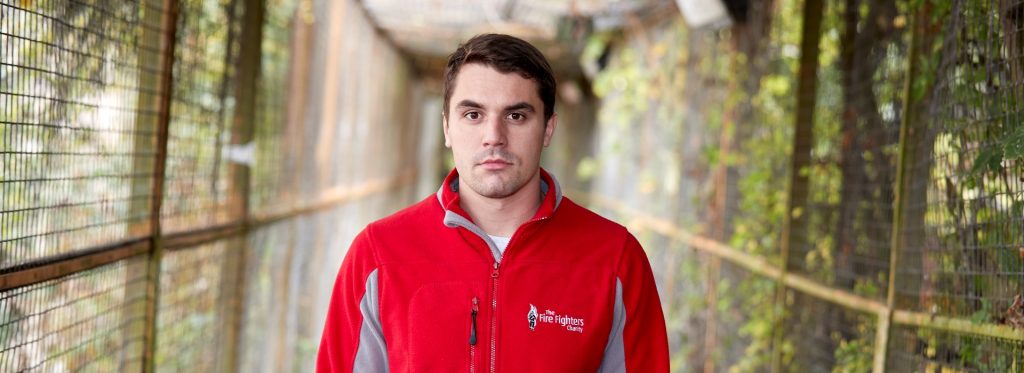Zak Shafique says his life went from ‘hero to zero’ in a matter of seconds on an ordinary Friday evening in March 2019. The then-26-year-old firefighter was driving home from a day shift at Barnet Fire Station when he came to a halt behind a broken-down vehicle on London’s North Circular Road.
“I was waiting there for about 10 seconds before someone drove into the back of me,” he says. “I’d had my foot hovering over the brake and the impact caused me to slam it down, which thrust me forwards. They were only doing maybe 10-15mph, but it made me twist my neck as I was thrust backward and forwards. I had no idea at the time just how much damage had been done, or that I had suffered a mildly traumatic brain injury.”
Zak had only joined London Fire Brigade 15 months earlier, after deciding he wanted to do something to challenge himself: “I’d been a personal trainer, but I had that itch to want to do more with my life in a meaningful way. I really liked it and the shift pattern meant I could fit in around my semi-professional swimming career. To me, being a firefighter was the perfect medium of giving back to society, while also creating a better version of yourself.”
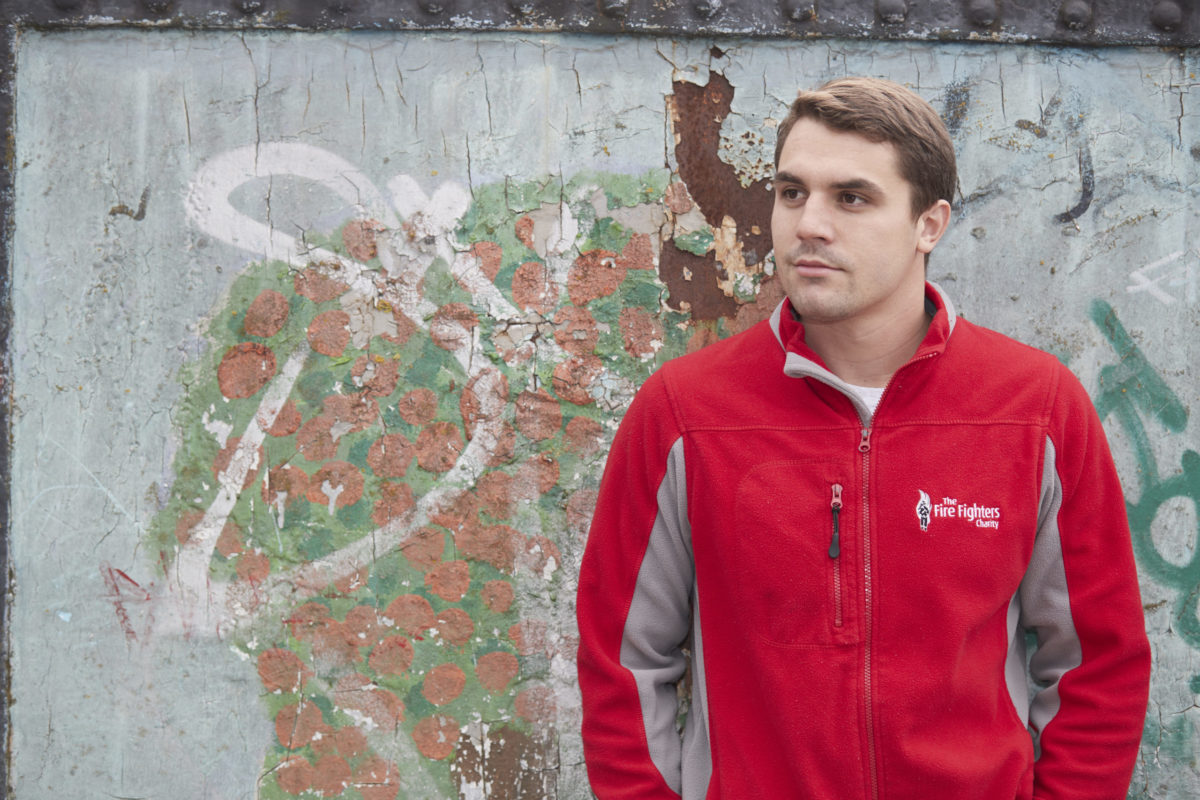
After the accident, it was not immediately apparent that something was seriously wrong.
“I thought I had mild whiplash as I was getting really bad headaches and felt tired all the time,” says Zak. “I was signed off work sick for six weeks and doctors gave me a lot of drugs for the pain. I didn’t feel too cognitively off, it felt a bit like I was drunk as my head was floating and I felt a bit dizzy. But I still didn’t think anything major was going on; as a firefighter, you attend road traffic accidents that are a total wipe out, and mine was just a bump from behind, so I thought things couldn’t be that bad.”
Zak’s quality of life began to decline, with headaches exhausting him to the point where he couldn’t get out of bed for days on end and his 56-year-old dad had to carry him up the stairs.
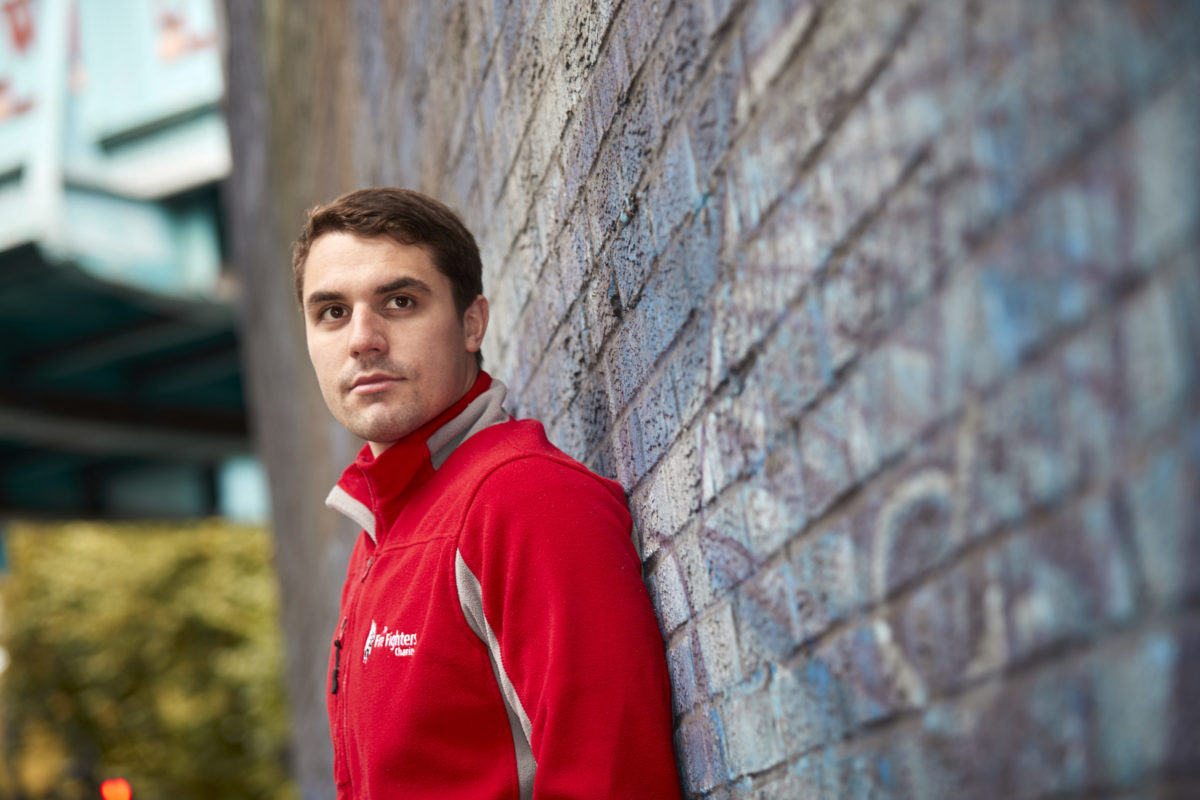
Barnet Fire Station shares its premises with an ambulance station, and Zak mentioned just how ill he felt to paramedic friends, who insisted he go to hospital and ask for a brain scan. However, scans proved inconclusive and were unable to pinpoint any reason for Zak’s symptoms.
“It was frustrating and scary, because no one could tell me what was wrong,” he says. “I tried paying to go private, but over the next few months things got progressively worse. A busy room would make me physically sick and the effort of socialising would wipe me out for days. I couldn’t watch TV because of the light sensitivity, I couldn’t read because my eyes wouldn’t focus, I couldn’t do colouring because the scratching gave me headaches. So I started doing paint-by-numbers, gardening and even baking.
“I didn’t know it then, but my autonomic nervous system had been damaged, so my brain was getting confused as it wasn’t getting enough oxygen. The autonomic system controls all the things in your body you don’t think about, like dilating your pupils in light or controlling your blood pressure, so my heart rate would plummet from 80 to 30 in a matter of seconds. It was like that for about nine months.”
During his passing out week, Zak had heard about The Fire Fighters Charity and the services on offer and he kept the leaflet he’d been given: “I just thought you never know what’s going to happen and it was nice to know the fire service had a Charity that would be there just in case. If I never needed it, I would do my bit to fundraise and donate each month. I had no idea how soon into my career I would be contacting The Fire Fighters Charity.”
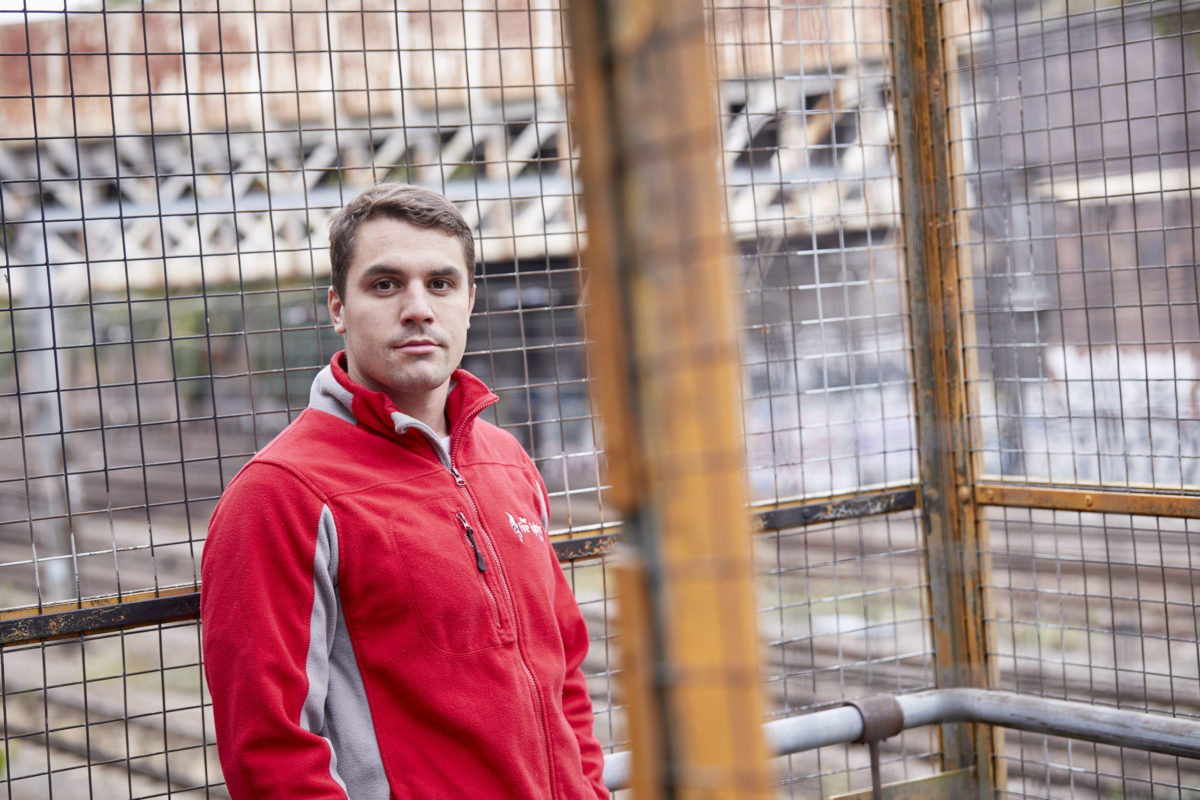
Seven months after his accident, Zak was offered a week of rest and relaxation at Marine Court, our centre in West Sussex. While still too sick to take part in the full programme of activities, the team was still keen that Zak benefit from his stay and suggested some exercises he could do to strengthen his neck muscles and help improve things. Unfortunately, even this period of relaxation proved too much.
“My dad had to come get me after a few days, because I just had no energy. I couldn’t do anything, couldn’t go for a walk, couldn’t hold a conversation with anyone. It was all I could do to sit up straight. My brain was using all its energy trying to get better, I just had nothing else to spare.”
Given a counsellor through London Fire Brigade to help him come to terms with things, Zak struggled to adjust to this sudden change to his life, especially its impact on his support network: “No one prepares you for the emotional toll of having to manage other people’s reactions to an accident. You’re just about coping with your own reaction, but then you also have to manage the impact on your family, partner, friends and colleagues.”
He says before his accident, he never considered what an impact having a disability could have on his daily life.
“I was definitely guilty of being in the ableism category and was someone who took my health for granted,” he says. “You never think the last time you do something is going to be the last. But then you wake up one morning and have to adjust to the fact you might never get better. I went from feeling like a hero in the fire brigade to feeling like someone with zero prospects. People are sympathetic to begin with of course, but as months passed, everyone just moved on with their lives when you couldn’t meet the expectation to be who you were before. It’s incredibly lonely, when you’re sick and at home while everyone else is out living as they always have done. I remember the moment I had to pack up my locker at work and send off my firefighting gear being a particularly low point, just how much I was saying goodbye to.”
Zak says the enforcement of a global lockdown to try and contain the spread of the coronavirus actually helped with his healing, both physically and mentally.
“Before lockdown, I was so desperate to make progress that if I ever felt a little bit better, I’d go for a swim or go see friends and then would end up feeling even worse,” he says. “But when lockdown came along, there wasn’t any demand to go to social events and suddenly everyone was living like I had done for the last 12 months, hardly going out and taking things at a much slower pace. Plus I had more company during the days as my girlfriend was working from home, which really helped my mood. And I found the more my mood improved, the more I was able to accept things a bit more, even if progress was not as fast as I’d have liked.”
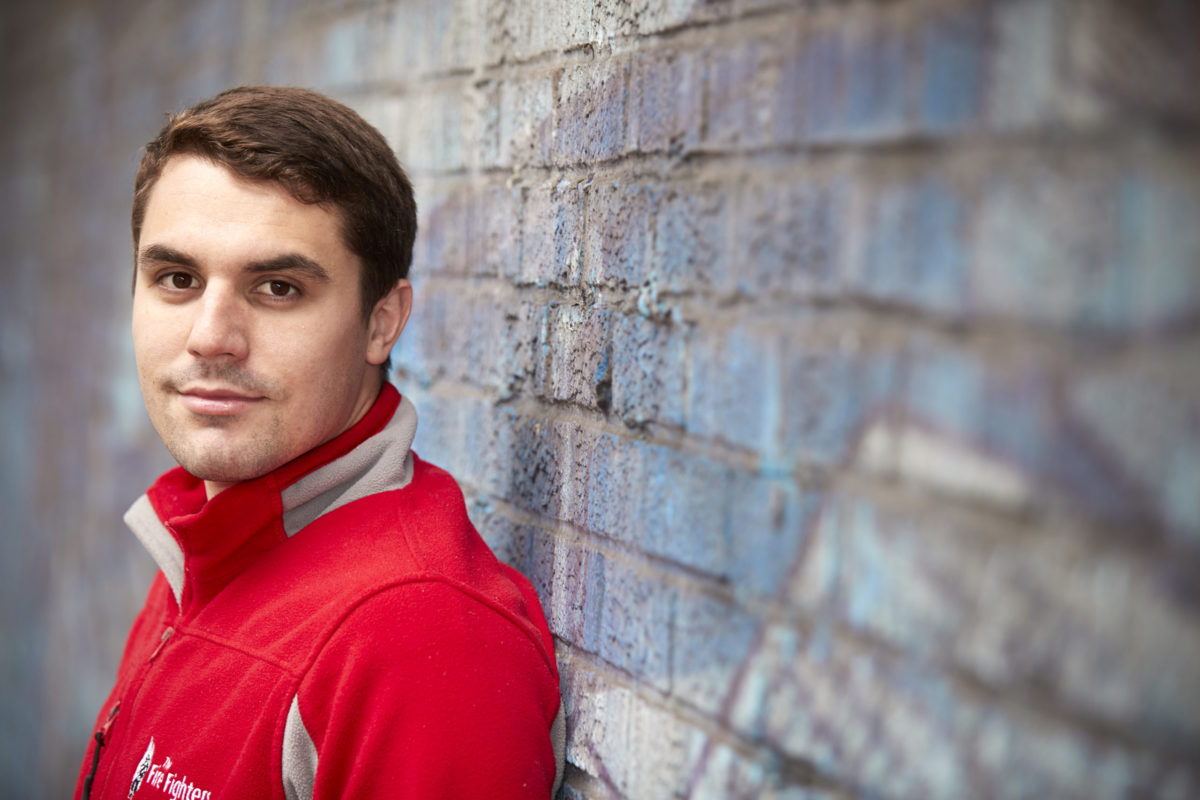
One thing that has helped Zak’s progress during lockdown was the constant communication he was in with Tom, one of our practitioners from Marine Court, who regularly held video calls with Zak to check in on his progress.
“Tom was brilliant, coming up with all these different exercises I could do to strengthen my neck muscles, so it no longer hurts 24-7 like it used to,” says Zak. “Also, I was really having trouble sleeping, because I’d be in pain if I lay on my side and these strengthening techniques have really helped. Tom would make my exercises slightly harder each time and we’ve come up with a longer-term plan to help me build up my fitness and stamina, which will hopefully include a visit in person in the future. So I’ve learned to appreciate that an extra 10 seconds of standing up compared to the week before is still progress.
“I’m still very much in the middle of my recovery and the nature of a brain injury is that it’s an ever-evolving thing. But I’ve managed to meet people who have gone through similar experiences, which has really helped.”
Zak, who follows us on social media, saw an article we published about our partnership with outdoor activities charity Climbing Out and an opportunity for our beneficiaries to join them. The charity was holding a special week in Cumbria for members of the emergency services community, to help find them to build resilience in the face of adversity.
“I saw your advert and I just thought, I need to do this,” he says. “For me, taking part in Climbing Out was a test to see if people could accept this new me and judge me for what I am now, rather than the judgement and comparison I kept making to who I was before my accident.”
At the end of the summer, Zak, who had barely left his London home in 16 months, headed to Cumbria to join other emergency services personnel on the course. Combining outdoor activity with mind management and personal development coaching, the week was aimed at helping police, fire, ambulance and prison services personnel dealing with different forms of trauma.
The charity operates out of two locations in the UK: the Lake District and North Wales. It runs a variety of outdoor activities, including rock climbing, kayaking, gully scrambling and hill walking, all of which are adapted to meet the needs and capabilities of groups, including those with higher levels of physical challenges as well as wheelchair uses.
For Zak, the week was utterly transformative.
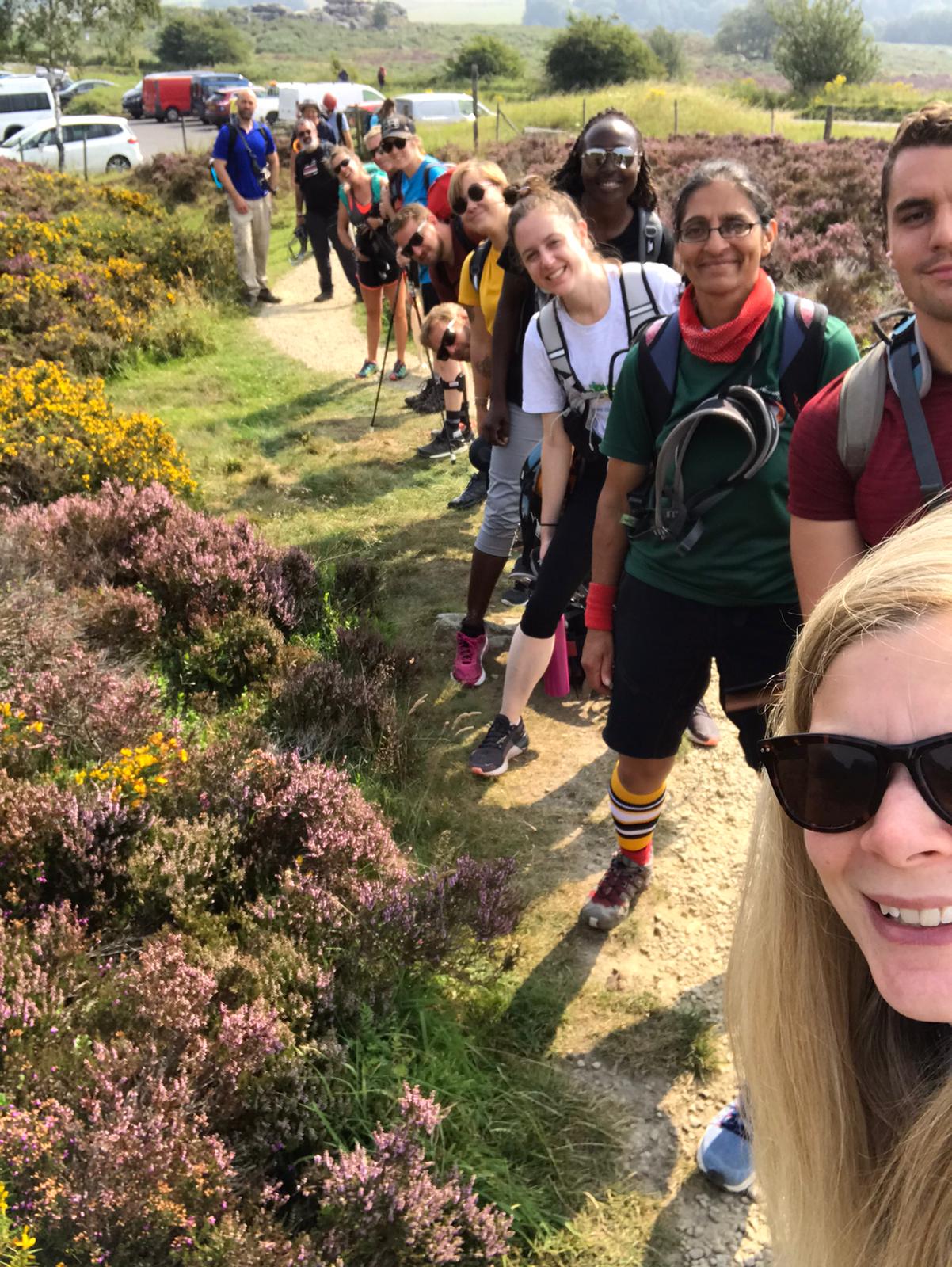
“As soon as you arrived, you just felt so safe,” he says. “There aren’t many places where you feel safe to be vulnerable, especially as a firefighter, whose tough exteriors are not always true of what’s going on underneath. But everyone there was so lovely and understanding, completely accepting of your limits. During a hike, when my vision started to go, instead of fussing or panicking, they just let me have a lie down while everyone stopped for lunch. And then later, during a kayaking session, knowing how comfortable I feel in the water, they paired me with someone who couldn’t swim. For the first time in a long time, I felt helpful again. We spent five hours on the water and I was so impressed with myself, because I just didn’t think I had that in me anymore. It was like seeing flashes of myself heading in the right direction.”
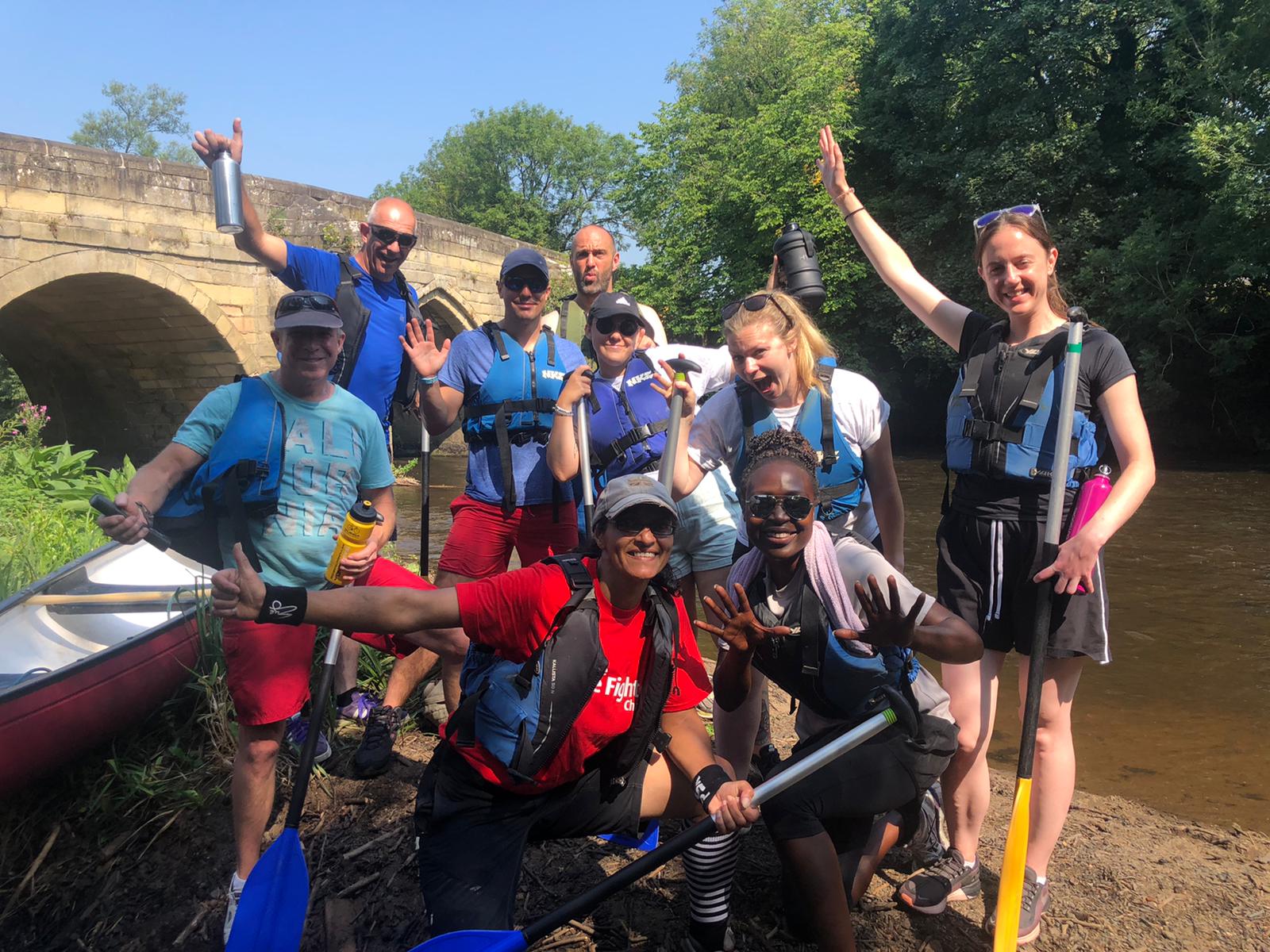
His time with Climbing Out also equipped Zak with tools to tackle some of the mental burdens he’d been carrying since his accident. A special moment at the end of the week saw participants give each other words they felt summed them up, and Zak, to his surprise, received words such as ‘helpful,’ ‘resourceful,’ ‘strong’ and ‘motivating.’ He found little by little, he started to let go of things.
“Being there with people who’ve been through similar experiences to you, spending your days walking in each other’s shoes…it helped you get the best out of what was left in your own shoes, if that makes sense? I’d pressed the pause button on everything because I’d been struggling for so long. When you’re in something that deep, it can be very hard to see the light at the end of the tunnel. But they made me feel inspired. And they made me feel capable.”
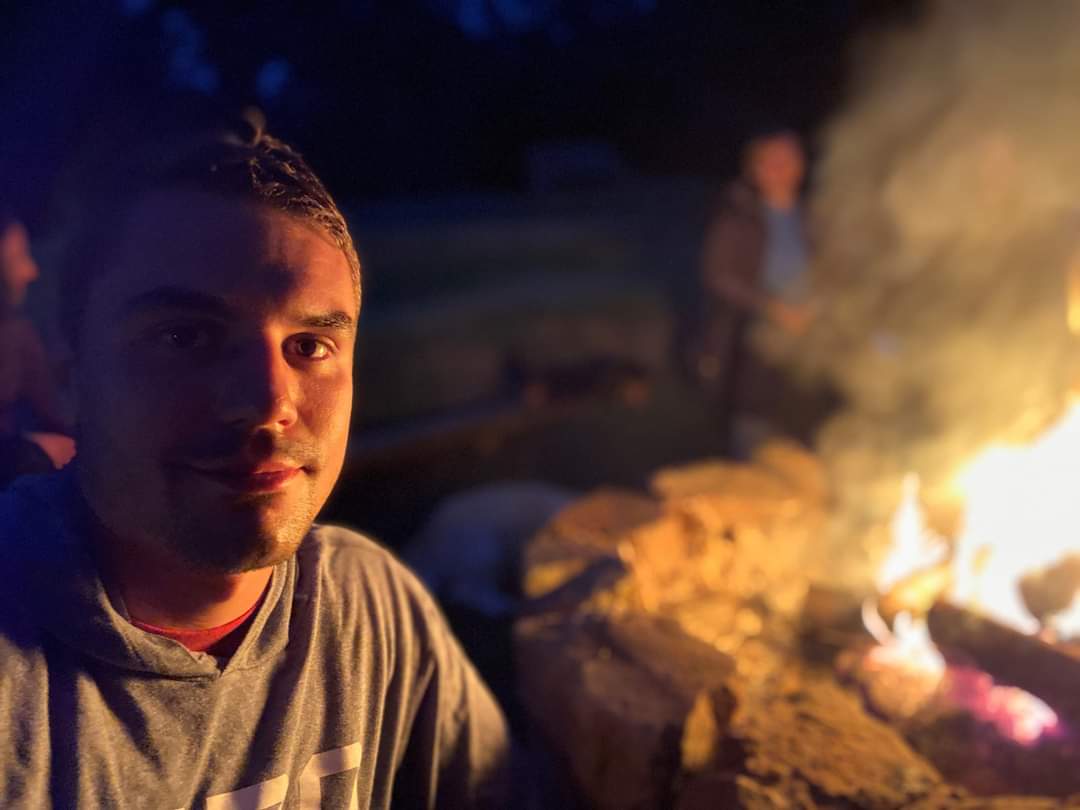
“When you’re sick, you get scared to live your life, worried about ramifications of every action in case you hurt yourself more. But you [The Fire Fighters Charity] gave me the confidence in myself and gave me unexpected options. During my week in Cumbria, one of the questions we were asked is ‘what would you do if you knew you couldn’t fail?’ For me, that was an incredibly potent thought. And the answer is to ask for help and start moving forwards despite the obstacles, rather than being fearful of them.
“The support I’ve received from The Fire Fighters Charity and Climbing Out has helped me to acknowledge and accept things, but also to add some actions for myself,” he explains. “Sometimes you have to admit you need help. I think I spent the first year trying to find new ways to do everything for myself, but you don’t need to be your own case manager all the time.
“I was willing to be open and challenged. I found myself placed on this pedestal of confidence and self-belief that was so high, I could suddenly see the road ahead of me, giving me faith in my long-term recovery.”
“I don’t know what the future holds for my career with the fire service and I may have to be medically retired. But I have felt so supported by organisations I could only have accessed and continue to access because of my time in the service, even if it has been cut short. Tom said something to me that has really stayed with me. He said, ‘even if you don’t manage to get back on the run, we can still help you get a better quality of life.’ It’s nice to feel that people still believe in you, even if you can’t be the person you thought you were going to be.”

“I’ve been donating to The Fire Fighters Charity since the word go, because I just thought you never know what might happen. And I’ve continued to donate throughout this period, because I think it’s such a worthwhile cause and resource available to the fire community. The support I’ve received hasn’t helped me find the old me, or even a new me. But it’s helped me find the most ‘me’ version of myself for who I am right now. And that means everything.”
If you’re struggling to adjust to a life-changing injury or health diagnosis, get in touch with us. Call our Support Line on 0800 389 8820 or make an enquiry online at www.firefighterscharity.org.uk/support.
Share your story
